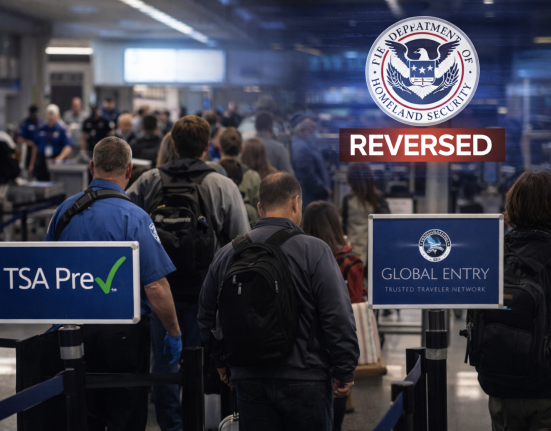Visa and Mastercard have agreed to a revised $38 billion settlement with U.S. merchants, aiming to resolve a two-decade antitrust dispute over so-called swipe fees—charges businesses pay every time customers use credit cards. The new agreement is designed to address concerns from a federal judge who rejected a smaller $30 billion proposal in 2024 as “inadequate.”
The litigation, which began in the early 2000s, centers on whether Visa, Mastercard, and their member banks conspired to fix interchange fees, violating U.S. antitrust laws and inflating costs for merchants and consumers alike. Swipe fees are typically 2–2.5 % per transaction, averaging 2.35 % in 2024, according to the National Retail Federation (NRF). That amounted to $111 billion in total fees across U.S. merchants last year—quadruple the amount in 2009.
Settlement terms
The new deal would lower average swipe fees by 0.1 percentage point for five years, with standard consumer cards capped at 1.25 % for eight years (a 25 % reduction). It also allows merchants to opt out of accepting certain card categories, such as high-end rewards or commercial cards, and to add surcharges up to 3 % for customers paying by card.
Supporters say the changes will give small businesses more control and introduce price competition into a system long dominated by two networks. Visa said the agreement offers “meaningful relief” for merchants of all sizes, while Mastercard said smaller retailers stand to benefit most.
Two economic experts for the merchant plaintiffs—Nobel laureate Joseph Stiglitz and University of Washington professor Keith Leffler—estimated the reforms could save merchants $38 billion by 2031, and as much as $224 billion in total efficiency gains through increased competition and reduced pricing distortions.
Opposition and judicial skepticism
Major retail trade groups including the National Retail Federation and the Merchants Payments Coalition continue to oppose the deal. They argue it fails to address structural problems that let Visa and Mastercard maintain excessive control, especially through rules requiring retailers to “Honor All Cards” from each network. These groups maintain the settlement still leaves merchants unable to negotiate rates individually with banks.
Judge Margo Brodie, who oversees the case in federal court in Brooklyn, previously called the earlier settlement’s $6 billion in annual savings “paltry” relative to the networks’ revenue. Her approval will again be necessary for this revised deal.
Political and regulatory backdrop
The settlement intersects with legislative efforts: a bipartisan “Durbin–Marshall” bill in Congress aims to boost competition by allowing merchants to route transactions through alternative networks. The banking industry opposes that bill, saying it would harm cybersecurity and rewards programs.
The Electronic Payments Coalition, representing major card issuers like JPMorgan Chase, Citibank, Capital One, and Bank of America, supports the settlement, claiming it goes further than proposed legislation in lowering costs while preserving network stability.
Projections
- Short term: If approved, the settlement could immediately lower transaction costs for many small merchants and stabilize decades of litigation.
- Medium term: Consumers might see modest price stabilization if cost savings pass through, though retailers could retain much of the benefit.
- Long term: Broader implications could include renewed regulatory focus on card networks, digital wallets, and fintech alternatives, reshaping the $100 billion U.S. payments ecosystem. The deal may also influence European and Asian markets watching U.S. interchange regulation.
References
- Reuters: “Visa, Mastercard reach revised $38 billion swipe-fee settlement with merchants” (Nov 10 2025).
- Associated Press: “Visa, Mastercard update merchant settlement as judge weighs fee reform.”
- Bloomberg News: “Visa, Mastercard agree to sweeping U.S. interchange-fee overhaul.”
- The Wall Street Journal: “New Visa-Mastercard accord could reshape card-fee landscape.”
- National Retail Federation: Statement on revised interchange-fee proposal.
- Electronic Payments Coalition: Press release supporting 2025 settlement.








Leave feedback about this
You must be logged in to post a comment.